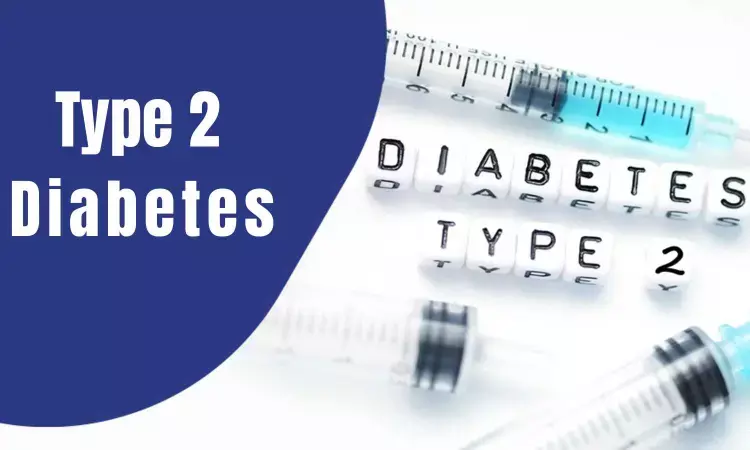- Home
- Medical news & Guidelines
- Anesthesiology
- Cardiology and CTVS
- Critical Care
- Dentistry
- Dermatology
- Diabetes and Endocrinology
- ENT
- Gastroenterology
- Medicine
- Nephrology
- Neurology
- Obstretics-Gynaecology
- Oncology
- Ophthalmology
- Orthopaedics
- Pediatrics-Neonatology
- Psychiatry
- Pulmonology
- Radiology
- Surgery
- Urology
- Laboratory Medicine
- Diet
- Nursing
- Paramedical
- Physiotherapy
- Health news
- Fact Check
- Bone Health Fact Check
- Brain Health Fact Check
- Cancer Related Fact Check
- Child Care Fact Check
- Dental and oral health fact check
- Diabetes and metabolic health fact check
- Diet and Nutrition Fact Check
- Eye and ENT Care Fact Check
- Fitness fact check
- Gut health fact check
- Heart health fact check
- Kidney health fact check
- Medical education fact check
- Men's health fact check
- Respiratory fact check
- Skin and hair care fact check
- Vaccine and Immunization fact check
- Women's health fact check
- AYUSH
- State News
- Andaman and Nicobar Islands
- Andhra Pradesh
- Arunachal Pradesh
- Assam
- Bihar
- Chandigarh
- Chattisgarh
- Dadra and Nagar Haveli
- Daman and Diu
- Delhi
- Goa
- Gujarat
- Haryana
- Himachal Pradesh
- Jammu & Kashmir
- Jharkhand
- Karnataka
- Kerala
- Ladakh
- Lakshadweep
- Madhya Pradesh
- Maharashtra
- Manipur
- Meghalaya
- Mizoram
- Nagaland
- Odisha
- Puducherry
- Punjab
- Rajasthan
- Sikkim
- Tamil Nadu
- Telangana
- Tripura
- Uttar Pradesh
- Uttrakhand
- West Bengal
- Medical Education
- Industry
Breastfeeding can help prevent type 2 diabetes in mothers, study claims

USA: Breastfeeding can help protect mothers against type 2 diabetes in later years by increasing insulin sensitivity and improving the number of insulin-producing cells in the pancreas, a mice study has shown.
The findings were presented at the ENDO 2023, the Endocrine Society’s annual meeting in Chicago, Ill, on 15th June 2023. The researchers designed the study to compare the metabolic effects of breastfeeding versus non-breastfeeding and to study changes in metabolism resulting from lactation.
Many previous studies in women have shown that prolonged breastfeeding lowers a mother’s subsequent lifetime risk for type 2 diabetes. Still, the reason for this is unknown, said lead researcher Julie Hens, PhD, of Yale University in New Haven, Conn.
They studied mice who became pregnant and delivered their pups and split them into two groups – those that nursed and those whose pups were removed immediately after birth. Mice in the lactating group were then studied a month after the pups were weaned and were compared to aged-matched mice that had delivered but not nursed.
The study found that the non-lactating mice and lactating mice had similar body weights overall. However, the non-lactating mice had an increase specifically in a type of metabolically active fat analogous to the visceral fat in humans that is well known to increase the risk of developing diabetes.
Mice that did not lactate had fewer insulin-producing cells in their pancreas. Having fewer of these cells means the body has less reserve of insulin production, which might contribute to an increased risk of developing diabetes. Mice that did not lactate also had more insulin resistance, which occurs when cells in the muscles, fat and liver do not respond as they should to insulin. Over time, this can stress the insulin-producing cells, causing them to fail and leading to diabetes.
“It’s often assumed that nursing leads to a lower risk of diabetes because it is associated with weight loss, which improves metabolism. However, studies in women have shown that this protective effect is independent of weight loss. Our study in mice also corroborates these findings and suggests that the protective effect of nursing may be related to effects both to increase the reserves of insulin-producing cells and to lessen whole body resistance to the effects of insulin,” Hens said.
Dr Kamal Kant Kohli-MBBS, DTCD- a chest specialist with more than 30 years of practice and a flair for writing clinical articles, Dr Kamal Kant Kohli joined Medical Dialogues as a Chief Editor of Medical News. Besides writing articles, as an editor, he proofreads and verifies all the medical content published on Medical Dialogues including those coming from journals, studies,medical conferences,guidelines etc. Email: drkohli@medicaldialogues.in. Contact no. 011-43720751


